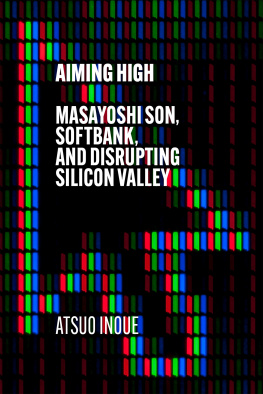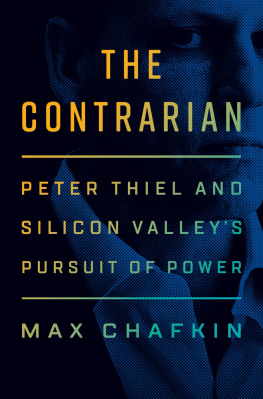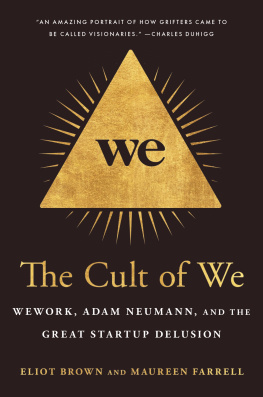Atsuo Inoue is a writer living in Japan. In 1986, he was one of the first Japanese journalists to interview Bill Gates and Ted Turner. The first time he interviewed Masayoshi Son was in 1987 and has since covered him closely for more than 30 years. While living in the USA, he interviewed many celebrities including Irving Wallce, Muhammad Ali, George Harrison, and Jeffrey Archer.
Over the course of his successful career, he has published numerous books including The Mentalities and Mindsets of Entrepreneur Masayoshi Son, Tokaton Masayoshi Son Monogatari.
Chapter 1
On his way
The date is 27 January 1973. The United States, North Vietnam, South Vietnam and the Provisional Revolutionary Government of the Republic of South Vietnam have signed the Paris Peace Accords. What was supposed to have been an honourable exit for the Americans was later annulled and the Vietnam War raged for another two years. In the summer of that year, a boy from Kyushu would travel to the United States for the first time, having enrolled on a language course there.
The excitement and anticipation of visiting such an unknown and far-off place were soon punctured on arrival at the Tokyo Haneda Airport international departures gate. He now had to split off from his friends and head to the designated foreigners gate. Whats so different about you? asked a friend, although Masayoshi pretended not to hear him. Back in those days, Japanese and foreigners were separated at the international departures gate.
Up until then Masayoshi had led a regular life as a Korean national in Japan with no real concerns this was his first brush with the reality of the matter. The experience was not a pleasant one, his grand departure for America deflated by the banal reality of it all.
Upon boarding the aircraft, and while his friends were still bubbling with excitement, Masayoshi quietly fell sound asleep. It seemed nothing could faze him.
The aeroplane landed in San Francisco without incident. The California sky was endless, blue, clear quite different to the sky in Japan. Masayoshi inhaled deeply and the brain fog caused by travel and jet lag completely disappeared. He forgot all about the humiliation he had experienced at Haneda Airport.
Classes for the language training course were to be held in classrooms belonging to the University of California, Berkeley. It was still hard for Masayoshi to distinguish between the L and R consonant sounds, even for common vocabulary words, despite being able to read them perfectly well from his English lessons in Japan. Take, for example, McDonalds. In Japanese this is pronounced MOCK-dough-NAH-roo-dough , but in American English it is something completely different altogether.
Later in life, and due to speaking commitments at conventions in both the States and around the world in front of large audiences, Son would develop considerably more confidence in his handling of the English language. His first trip abroad, though, was spent coming to grips with the pronunciation.
Outside of his studies he was also able to take in some of the sights of the American West: the city of San Francisco itself, Yosemite National Park and the Grand Canyon National Park. More than tourism, however, shopping and the vast American motorway network would have a greater impact on Masayoshi.
Everything was huge and his own problems seemed insignificant in comparison.
Berkeley in the 1970s was an interesting place to be due to the number of anti-war protests held concerning what the Americans were getting up to in Vietnam. From an academic standpoint, too, American universities were gaining global prominence, having produced multiple Nobel Prize winners.
Once the days lessons were over, Masayoshi would frequently walk around the campus with his classmates. During these walks he would regularly chance upon students enjoying college life each in their own way: one giving a passionate speech, another banging a Taiko drum, a bare-chested female student lying on the grass reading a book.
Berkeley was filled with all kinds of people: people with a different colour skin or age group compared to his own. America was a melting pot of races. Masayoshi had read about this in his textbooks, although seeing it with his own eyes could be overwhelming at times.
Whilst America may have been experiencing a period of upheaval due to the Vietnam War, Masayoshi was glad he had made the journey. Returning home to Japan, all smiles and bronzed after his four weeks abroad, he had an announcement to make to his parents:
Im going to leave school.
Naturally, this declaration was met with strong opposition from his family. All his relatives warned him that it was much too soon hed only just started secondary, why couldnt he wait until he had graduated? And was schooling really the issue at hand here?
Masayoshis own reasoning was that even if he went through the trouble of finishing university he would not be accepted into Japanese society because of his nationality. The gears were turning inside his head, however: if he graduated from an American university they would have to rate him back in Japan, and so he set about looking for a way to make this happen. Life was too short and if he didnt act now he would regret it later.
Masayoshi was acutely aware that life is measured in decades, years, months, weeks, days, hours, minutes, seconds all of them counting down. He was determined to live every second to the fullest. How far could he go at Berkeley under that vast blue sky? Masayoshi had made up his mind and was unyielding in his convictions, although he never at any point stopped worrying about his family. To further complicate matters, soon afterwards Masayoshis father began coughing up blood.
You think its all right to leave your poorly father behind whilst you go off and do your own thing?
You know your mother is going to miss you.
At a time like this when your family are really struggling to keep things together, youre going to go gallivanting off to America?
Masayoshi found himself in the same predicament as Sakamoto Ryoma, the man who ushered in the modern era of Japan. Sakamoto had deserted the conservative Tosa clan and become a ronin , a lordless samurai. In that era, desertion was a serious crime and affected not just the deserter, but also his family members and relatives.
Even so, Masayoshis mind was made up this was something he had to do for himself. If he put off his second American trip now, that door may not open again. Following ones principles would occasionally mean having to step on a few toes, or so Masayoshi reasoned.
Besides, he knew there would come a day when he would be able to return the favour to his family the task at hand was to stay focused on his trip to the New World and to plough ahead.
His relatives could protest all they liked about his plans, but the first person to give Masayoshi his blessing was his father, bedridden in hospital due to problems with his small intestine. His only condition, issued to Masayoshi at his bedside, was that he come home once a year to visit.
Prior to his departure in February 1974 for California, Masayoshis Kurume High classmates organised a farewell do for him at the Ishibashi Sport Centre in Fukuoka, where they wished him every success in future over fizzy drinks and sweets, all joining in to sing the theme song from the popular television drama The Young Ones . The lyrics were prescient, particularly the line stating Youre going to go off and do it. Masayoshi wasnt above shedding a tear or two at the party.
His family saw him off at Fukuoka Airport. His mother, patting his back, her voice trembling from the tears, made him promise her to come back to visit them. Masayoshis response, whilst in the affirmative, was purposely curt. As the plane flew towards its destination, memories would float into Masayoshis mind only to vanish and then reappear again. This rare indulgence in sentimentality was only temporary, however.
Next page



